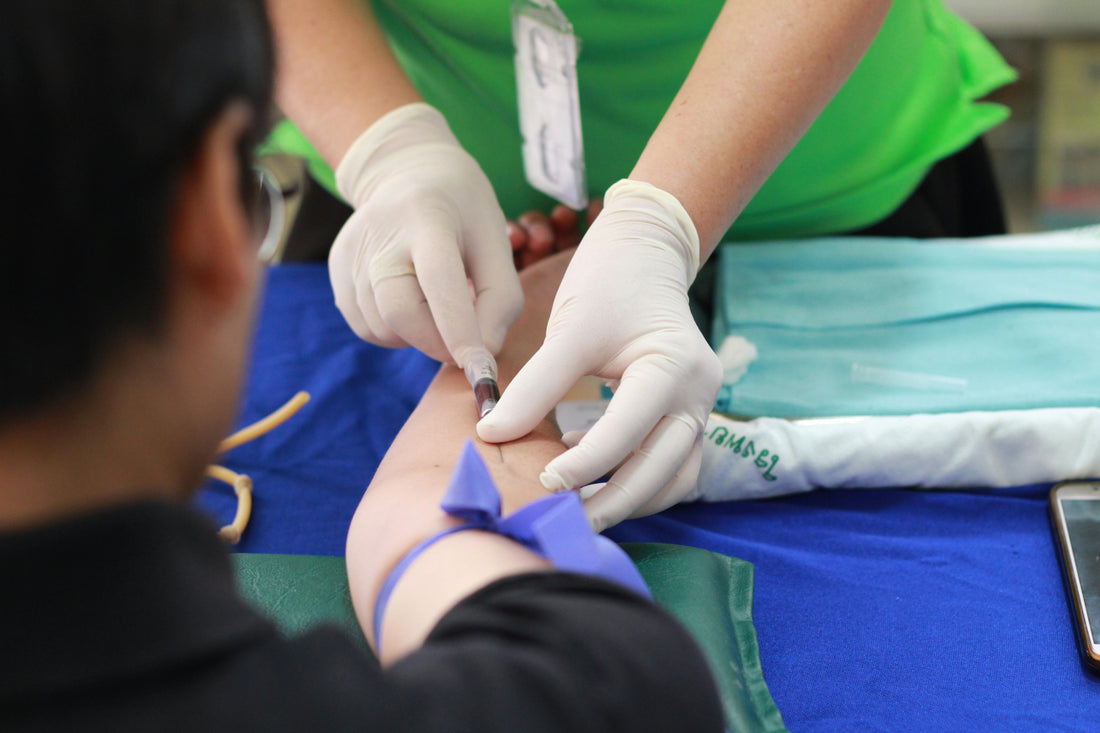
How a Blood Test Could Predict Heart Disease Early
Share
Atherosclerosis is a condition where arteries become narrowed and hardened due to a buildup of plaque. This plaque is made up of fat, cholesterol, calcium, and other substances found in the blood. Over time, this buildup can block blood flow and lead to serious health problems like heart attacks and strokes.
What makes it even more dangerous is that it develops silently over decades without any clear warning signs until a major health event occurs.
Why Early Detection is Important
Right now, doctors mainly rely on imaging tools like ultrasounds, CT scans, and MRIs to detect atherosclerosis. These tools are effective but expensive, not always available, and require trained specialists. More importantly, they’re usually used only when symptoms already appear.
If we had a simple blood test that could show whether a person has hidden plaque buildup in their arteries, it could be a game-changer. People at risk could be identified earlier and treated before any damage occurs.
What Are Proteomic Signatures?
This is where proteomics comes in. Proteomics is the large-scale study of proteins — the tiny molecules in our bodies that do most of the work in cells. Our blood contains thousands of these proteins, and changes in their levels can signal what’s going on inside our bodies.
Researchers from universities and research centers around the world analyzed blood samples from tens of thousands of people. Using advanced computer models (machine learning), they identified specific “proteomic signatures” — or unique patterns of proteins — that are linked to the presence and severity of atherosclerosis.
How the Study Worked
The scientists used blood samples from over 44,000 people in the UK Biobank, a large health study. They created four different protein-based signatures:
- WholeProteome – included all 2,920 measured proteins
- Genetic – included proteins linked to genes known to raise heart disease risk
- Mechanistic – included proteins directly involved in the biological processes of plaque buildup
- Arterial – included proteins found mostly in artery tissues
These signatures could predict who already had atherosclerosis and who was likely to have a heart attack or stroke in the future. One of the signatures was able to predict risk with up to 92% accuracy.
What This Means for the Future
The key takeaway is that a simple blood test may one day be able to tell whether someone has hidden atherosclerosis — even if they feel fine and have no symptoms.
This could help doctors:
- Identify high-risk patients earlier
- Start treatment or lifestyle changes sooner
- Reduce the chance of heart attacks or strokes
- Monitor whether treatment is working over time
It also means better personalized care. Instead of treating everyone the same based on age or cholesterol levels, we could use protein data to tailor prevention and treatment plans to each individual.
What Can You Do Today?
While this research is still in development and not yet used in everyday clinics, there are still important steps you can take:
- Get your blood pressure, cholesterol, and blood sugar checked regularly
- Eat a heart-healthy diet rich in fruits, vegetables, whole grains, and healthy fats
- Exercise regularly (at least 30 minutes a day, most days of the week)
- Avoid smoking and limit alcohol
- Manage stress and get enough sleep
These habits remain the foundation of preventing atherosclerosis and heart disease.
Final Thoughts
Proteomics offers exciting potential to revolutionize how we detect and manage heart disease. By turning a regular blood test into a powerful early-warning system, we could prevent countless heart attacks and strokes. While more research and testing are needed before it becomes a routine tool, it’s a promising glimpse into the future of personalized medicine.
